Sheriffmuir stones
Guest article by Jamie McGregor
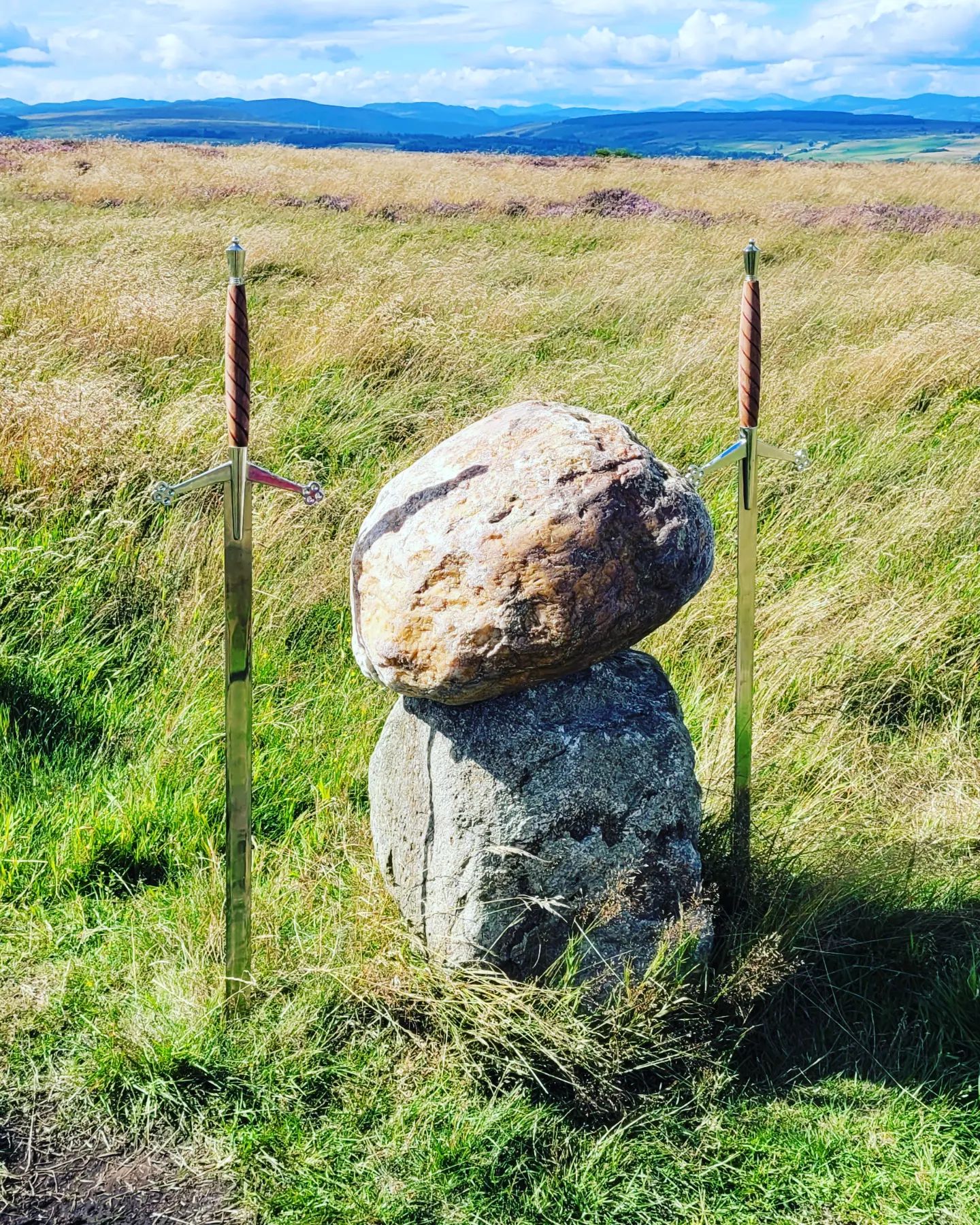
In my previous article, I mentioned that I have read just about everything I can find on the internet written by the late Peter Martin with regards to the Scottish stones. There is one particular passage in which Peter writes about something he’d like to see done in the future: Repositioning the now-recumbent ancient Wallace Stone plinth.
The plinth stone no longer exists in an upright position which is extremely unfortunate as the importance of this stone would have been further heightened had it managed to survive the ravages of the nearby farming community. This said, it is possible to upright the plinth stone on the flat section which would have indeed in former times been the reception area for the Wallace Putting Stone.1
With that in mind, I decided to visit the moor armed with a shovel and a fair amount of elbow grease.
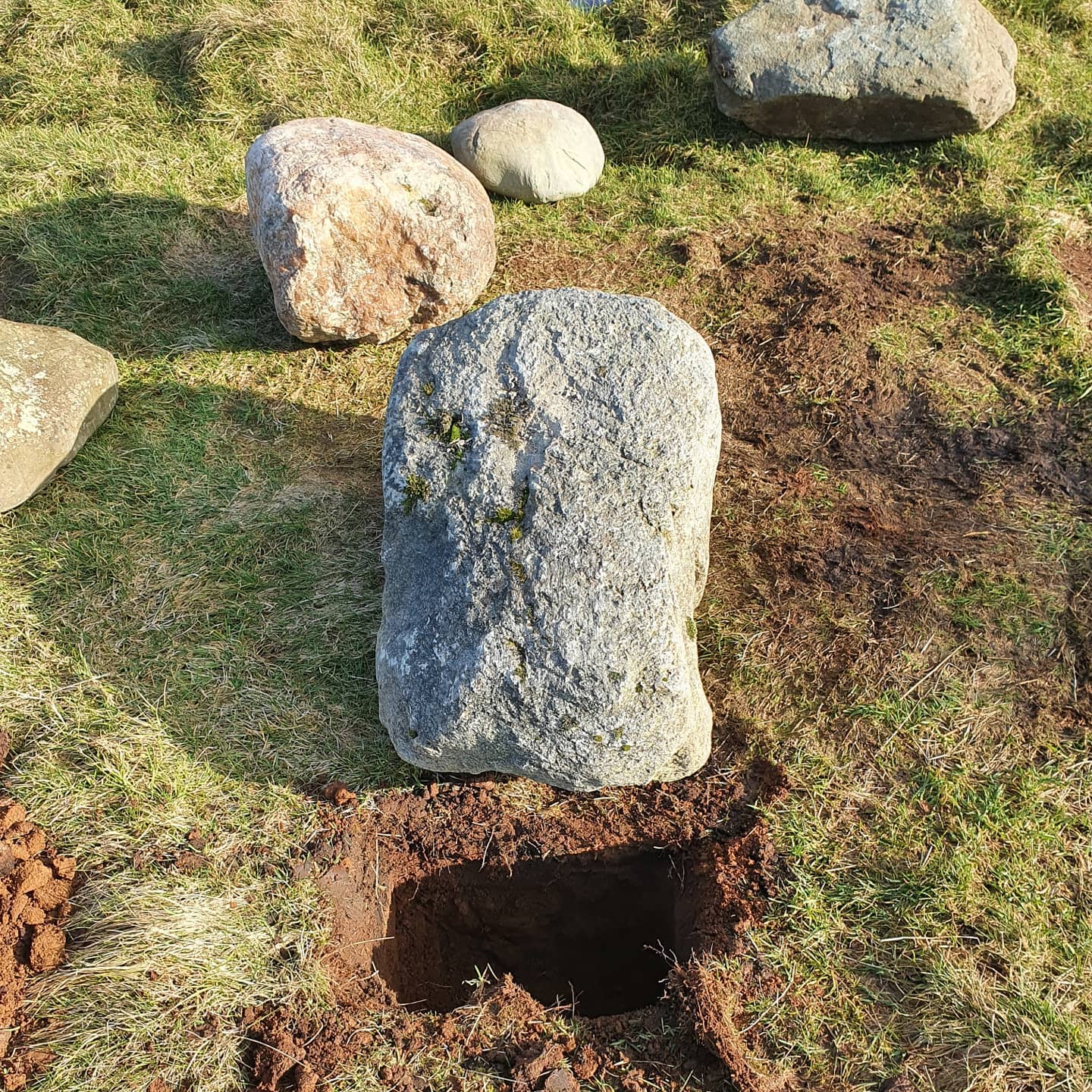
I dug a small hole deep enough to secure the plinth and moved the stone into place. I’d estimate the plinth to weigh around 300kg (661 lb), so it wasn’t the easiest thing to manoeuver. Eventually, I got the stone into position and upright — where it has stayed ever since.
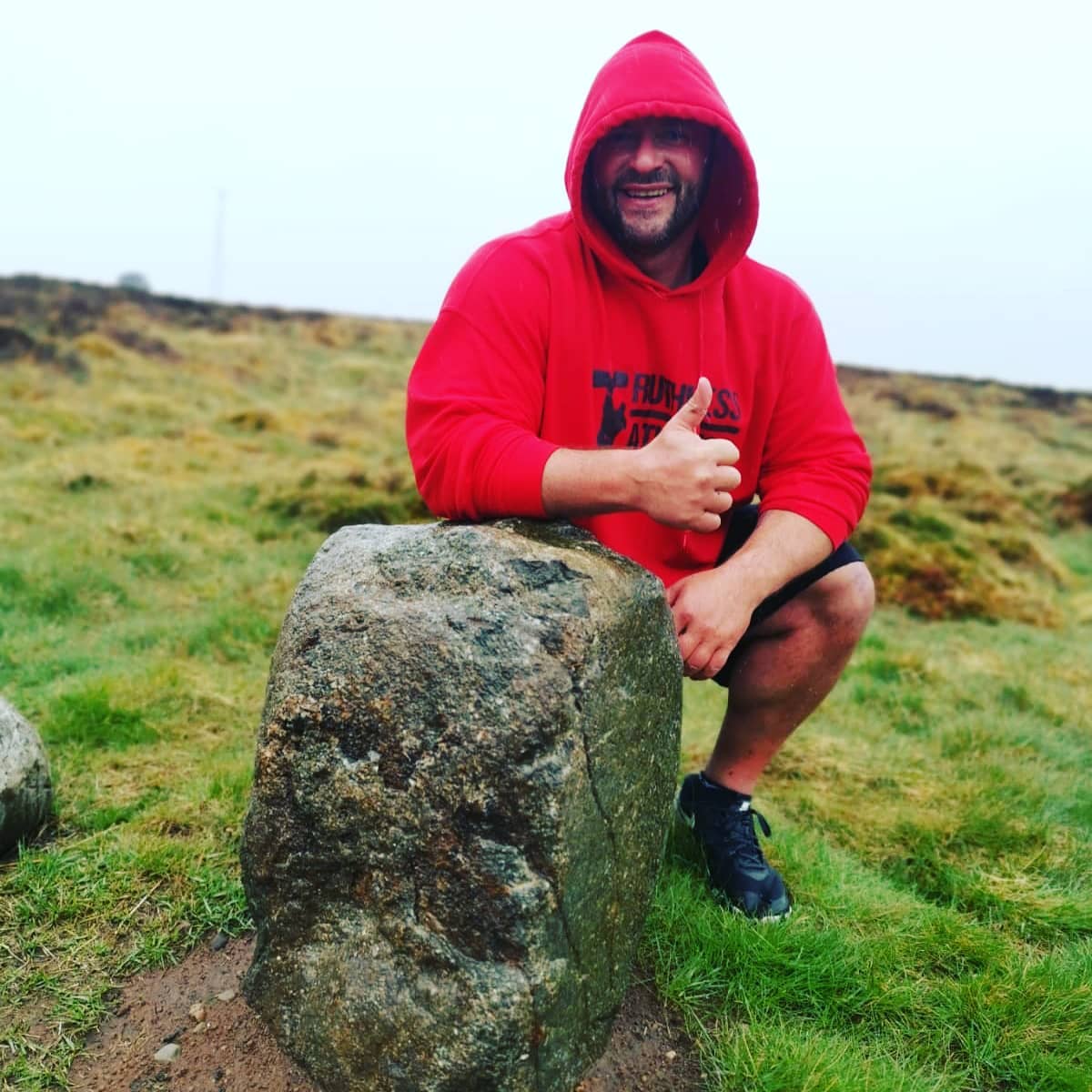
After doing a bit of research on the history of this area, I discovered that the plinth has connections to two important events: the Battle of Stirling Bridge in 1297, in which William Wallace’s army triumphed, and the Battle of Sheriffmuir in 1715, between the Jacobite and English armies.
It was clear that this area was the encampment for at least one, and possibly both, of those Scottish armies before they headed off to battle. This whole area is steeped in Wallace folklore, with numerous Wallace stones, such as the seven standing stones. We also know from the Dunblane traditions that there was an Arc of seven stones, one of which was believed to be the Wallace plinth.
After the sad demise of the Wallace putting stone, I felt it was important to revive stonelifting in this area. With help, I created this arc of seven stones that you see here today, so that history can continue at this ancient stonelifting site. All of the stones were sourced from within a mile or so of the site and placed in an arc around the Wallace plinth.
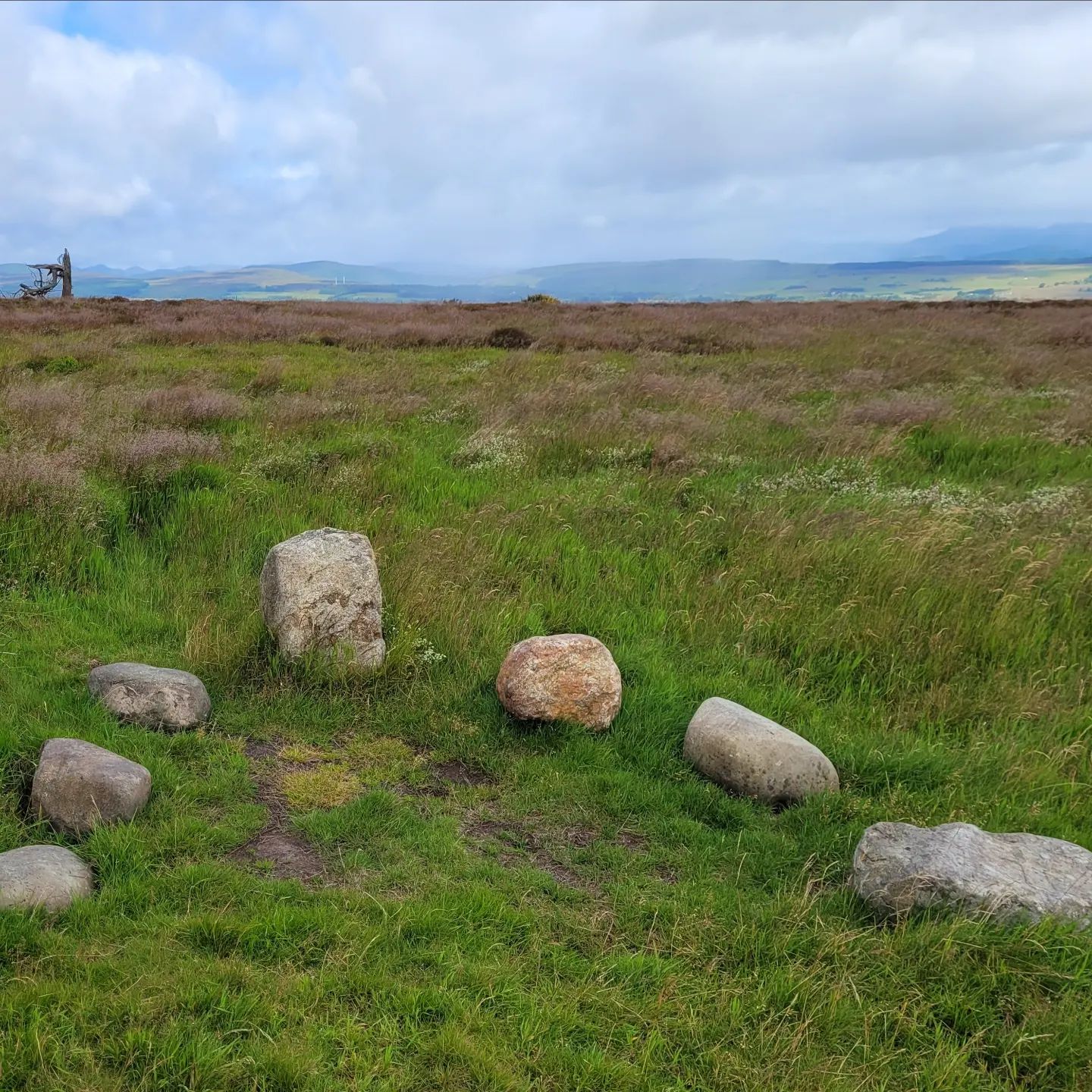
One of the great things about this lifting site is that it offers something unique in Scotland: a range of stones that can be lifted by people of all ages, genders, and skill levels. The stones include weights of 55kg, 73kg, 95kg, 120kg, 130kg, and the 163kg “Big Rusty”. And — since most of the stones are not historically significant — you can stack, lift, or put them to follow the traditions of this historic site.

Please take care when using the plinth. It’s an ancient piece of history that we’re fortunate and privileged to still be able to use. We should respect and preserve it for future generations to enjoy.
The Sheriffmuir stones are on the site of the broken Wallace Putting Stone in Sheriffmuir — you can find the location on the map.
Author
Jamie McGregor is one of the most accomplished stonelifters in the world. He lifts historic stones almost weekly, researches Scottish stones, and hosts his own stonelifting competitions!
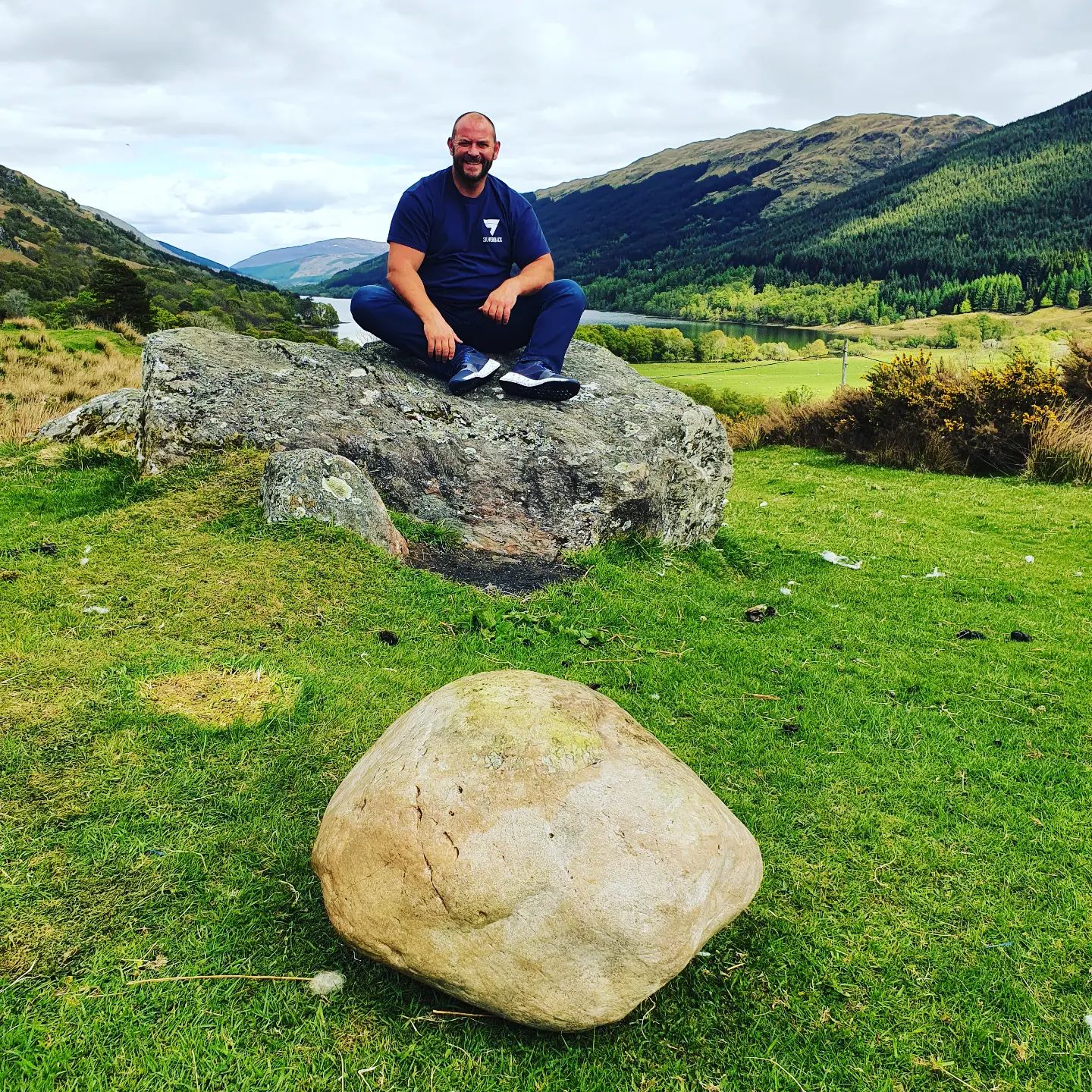
Contributions
With massive thanks to Jamie for sharing his story! You can follow him on Instagram.
References
-
THE WALLACE PUTTING STONE, Peter Martin — Via oldmanofthestones.com ↩
Read the liftingstones.org letters
Join thousands of other stonelifters who read the world's most popular stonelifting newsletter.